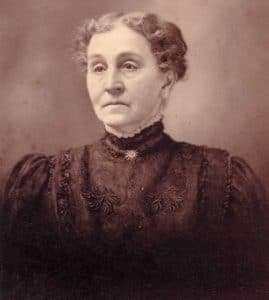Barton Brook
Barton Brook, in northwestern Windsor, was almost certainly named after Dr. Stephen Barton, Sr. (June 10, 1740- Oct. 21, 1804), or his family.
The brook connects the north end of Mud Pond with the south end of Threemile Pond (which is mostly in China and Vassalboro). In his history of Windsor, Linwood Lowden wrote that in 1799, the stream was named Wonnamdogus, a Native name that is now Warromantogus.
Part of the stream goes through the lot on which Dr. Barton settled in 1803, Lowden said.
Find a Grave says Barton was born in Sutton, Massachusetts. On May 28, 1765, he married Dorothy Learned Moore, who was born April 12, 1747, in Oxford, Massachusetts, and died there Nov. 11, 1838.
The FamilySearch website says the couple had at least seven sons and seven daughters, born between 1765 and 1791. Laurel Thatcher Ulrich, in “A Midwife’s Tale” (based on the diary of Dorothy’s sister, midwife Martha Ballard), said they had 13 children, and Dorothy “was almost five months pregnant” when they married.
Not all the Barton children lived to adulthood. Find a Grave says at least their first three sons died in infancy or early childhood, and another site says they lost at least one young daughter.
The sons named as adults are Stephen, Jr. (Aug. 18, 1774-March 21, 1862, born in Oxford, died and buried in Oxford and called Capt. on his gravestone because he was a captain in the militia); Elijah Moore (Aug. 10, 1784-Feb. 22, 1849, born in Vassalboro, Maine); Gideon (June 14, 1786-May 30, 1878, also born in Vassalboro) and Luke N. (Sept. 3, 1791-1837, born in Oxford).
Henry Kingsbury, in the chapter in his Kennebec County history titled The Medical Profession, wrote that Barton came from Oxford in 1774 and practiced in Vassalboro until 1778, when he went back to Oxford temporarily. Lowden said Barton and “three of his brothers” settled in Vassalboro in 1776.
Lowden found Dr. Barton’s “ledger book,” in which the doctor recorded details of his medical practice. In Vassalboro, main activities included “pulling teeth, applying dressings, bleeding patients, inducing vomiting, dispensing pills and elixirs, applying plasters and opening abscesses,” Lowden wrote.
Among common prescriptions were myrrh and aloes (which would have worked as painkillers and antiseptics); “Mugs of Toddy and cider” (Lowden did not guess why); and “Pill chochia,” which Lowden translated as “red pill.”
The Bartons went back to Oxford in 1790 (or 1788 – see box) and stayed until 1800. Returning to Maine, they spent two years in Augusta and another in Vassalboro before moving to Windsor.
Ulrich quoted an Oct. 14, 1802, letter Dr. Barton wrote to oldest son Stephen, still in Oxford, inviting him to move to Maine. The doctor said the family was “getting some land” where the only neighbors for a mile around would be owls, and “the boys” – Elijah and Gideon, aged 18 and 16, Ulrich said – could make a farm “if they will work.”
In his Windsor chapter, Kingsbury said Barton built his log cabin in 1803 “on the meadow in the western part of the town.” Lowden said the family lived “many years in a log cabin.”
Dr. Barton was not with his family in the log cabin for long. He died of consumption two years after they arrived, Kingsbury said (Oct. 21, 1804, Lowden wrote), and is buried where “he and his sons [Elijah and Gideon, according to Lowden] bivouacked the night they entered the woods.”
Find a Grave calls the site “the Barton farm.” A monument – a granite stone, according to Find a Grave – marked the grave in 1892, but Find a Grave says it is no longer there.
Kingsbury said Elijah and Gideon and grandson J. H. Barton settled near Barton’s cabin. Gideon married Sarah Pierce (Nov. 27, 1787-Oct. 9, 1834), of Windsor (Kingsbury) or Vassalboro (FamilySearch). They had at least eight sons and five (FamilySearch) or six (Kingsbury) daughters.
In Lowden’s list of Windsor men who served briefly in the War of 1812, Gideon Barton is named as commander of the company in which Clement and John Moody and Rufus Choate (named in previous articles in this series) served.
Lowden called Gideon Barton one of the first storekeepers in Windsor. He did not know when Barton opened the store in West Windsor, but he apparently found an account book from 1814.
The historian listed more than two dozen types of goods in the inventory – shoes and clothing; pipes, tobacco and pen knives; “powder, flints and shot”; scythes and seed corn; yokes and bows (for draft animals); pickled herring and other foods, including of course rum and molasses; and “itch ointment.”
Lowden said Elijah and Gideon were two of the four owners of a sawmill built on Barton Brook sometime after April 1816, on Gideon’s land. The historian recorded ownership changes up to 1832; he did not know when the mill stopped running.
Kingsbury listed Gideon Barton as a selectman in Malta and Windsor, first elected in 1814 and serving for 15 years. Other Bartons served as selectmen, town clerk and town treasurer in the 19th century.
The circa 1834 petition for a dam across the Kennebec that Henry and Dudley Dearborn signed (see last week’s article) was also signed by four Bartons, E. M. (Elijah Moore), Gideon, Luke M. and Samuel W.
There was a Barton school district, Kingsbury wrote, “near R[ufus]. P. Barton’s.” The schoolhouse there was moved closer to the middle of the district around 1850 and rebuilt; it burned around 1889.
The West Windsor post office, Kingsbury said, opened Sept. 8, 1873, “at the residence of Ira D. Barton, the appointee.” Find a Grave says Ira was Elijah’s son (Dr. Stephen’s grandson), born in 1820 and died in 1898.
The 1869 atlas shows five Bartons – G., J. D., R. P., T., and W. C. – plus a schoolhouse and the West Windsor post office, clustered south of the end of Threemile Pond, near what is now the intersection of Weeks Mills and Barton roads.
G. was probably Dr. Barton’s son, Gideon, Sr. R. P. was almost certainly the doctor’s grandson, Gideon and Sarah’s son, a farmer named Rufus P. (1816-1896). T. could have been Rufus’s younger brother, Theodore (1824-1901).
W. C. must have been William Collins Barton (1808-1889), Elijah’s older son. Elijah’s wife was Sally Fairfield; your writer found no other information about her, and also failed to find a J. D. Barton on the various family trees on line.
One more family distinction: Dr. Stephen Barton was the grandfather of Civil War nurse and Red Cross founder Clarissa “Clara” Harlowe Barton (Dec. 25, 1821-Apr. 12, 1912). Clara was the youngest daughter of Stephen, Jr., and his wife, Sarah “Sally” (Stone) Barton (Nov. 13, 1783-July 18, 1851).
Dorothy Barton younger sister of Martha Ballard
Dorothy Learned (Moore) Barton (April 12, 1747-Nov. 11, 1838) was a younger sister of midwife Martha (Moore) Ballard (1735-1812). Martha’s husband, Ephraim, first came to Fort Western to do surveying work in 1775, and he and Martha moved to Augusta in 1777.
Martha’s diary and related documents on which Laurel Thacher Ulrich drew in writing A Midwife’s Tale give more information about the Bartons.

Martha Ballard
Ulrich told a story from Dorothy and Martha’s childhood in Oxford, Massachusetts, before the Revolution, when American colonists were boycotting British imports, including tea (hence the Dec. 16, 1773, Boston Tea Party).
Dr. Barton, Ulrich said, was a member of the local committee formed to keep tea out of town. But when he was out of the house, his wife and sister-in-law were likely to provide “a cup of tea in the cellar for some sick mother in the neighborhood.”
Or, in the version Clara Barton shared as part of her family history, the sisters held tea parties in the cellar, hanging blankets across the door to keep the odor from the rest of the house.
Ulrich agreed with Lowden and Kingsbury that the Bartons moved several times before settling in Windsor. She said their return to Oxford in 1788 was from economic necessity: Dr. Barton was unsuccessful at “establishing a farm in Maine.” She surmised part of the problem might have been that their first six children (or, per Familysearch, six of the first seven who survived to adulthood) were daughters, unsuited for fieldwork.
The Bartons named two of their daughters Pamela and Clarissa. Ulrich said they were named after heroines of English author Samuel Richardson’s novels with those titles, published in 1740 and 1748, and concluded that Dorothy read the novels. Other daughters’ names she mentioned were Parthenia and Hannah; FamilySearch adds Dorothy and Mary.
When the older Bartons moved back to Oxford for a decade, Pamela, Clarissa and Parthenia stayed in Maine with the Ballards, Ulrich said. Parthenia moved into their household late in May 1788 and lived with her aunt and uncle most of the time until she married in November 1792.
By 1800, Martha Ballard’s health was failing. Ulrich wrote that one of her pleasures was her sister and brother-in-law’s move back to Maine.
Ulrich quoted passages from Martha’s diary about their return in May 1801 and her Sept. 1 visit to them, probably at “Mr. Crages Shop” where they lived first (or possibly in Vassalboro, where they moved later).
Stephen and Dorothy Barton’s son, Elijah, was involved in what historians call the Malta War, the multi-year dispute between proprietors, who claimed land titles from the British, and settlers, who might have alternative legal documents or might claim ownership on the basis of possession and improvement.
Windsor was a major battleground in this “war,” which culminated in a group of settlers shooting and killing a surveyor named Paul Chadwick on Sept. 8, 1809.
Elijah Barton was one of the eight men promptly arrested and jailed for the Chadwick murder. During the months before the mid-November trial, Ulrich wrote that the Ballards and Bartons spent time together, including, she said, an October night when the two sisters worked together to deliver a set of twins.
Ulrich wrote that jury selection for the trial of the alleged murderers began Nov. 16. The trial lasted about two weeks; the jurors acquitted the accused.
And, Ulrich wrote, on Dec. 3, Dorothy Barton and her four sons (Stephen, who was in Maine for the trial, Gideon, Elijah and Luke,) had supper at the Ballards’ and Elijah stayed overnight. “To all appearances, he was just another relative, just another visitor.”
Main sources
Kingsbury Henry D., ed., Illustrated History of Kennebec County Maine 1625-1892 (1892).
Lowden, Linwood H., good Land & fine Contrey but Poor roads a history of Windsor, Maine (1993).
Ulrich, Laurel Thatcher, A Midwife’s Tale The Life of Martha Ballard, Based on Her Diary, 1785-1812 (1990).
Websites, miscellaneous.
CORRECTION: In the February 29, 2024, issue of The Town Line, the wrong photo of Martha Ballard was published. The correct photo has been added to this online version. It was an editing error.




 Featured Expert:
Featured Expert:





